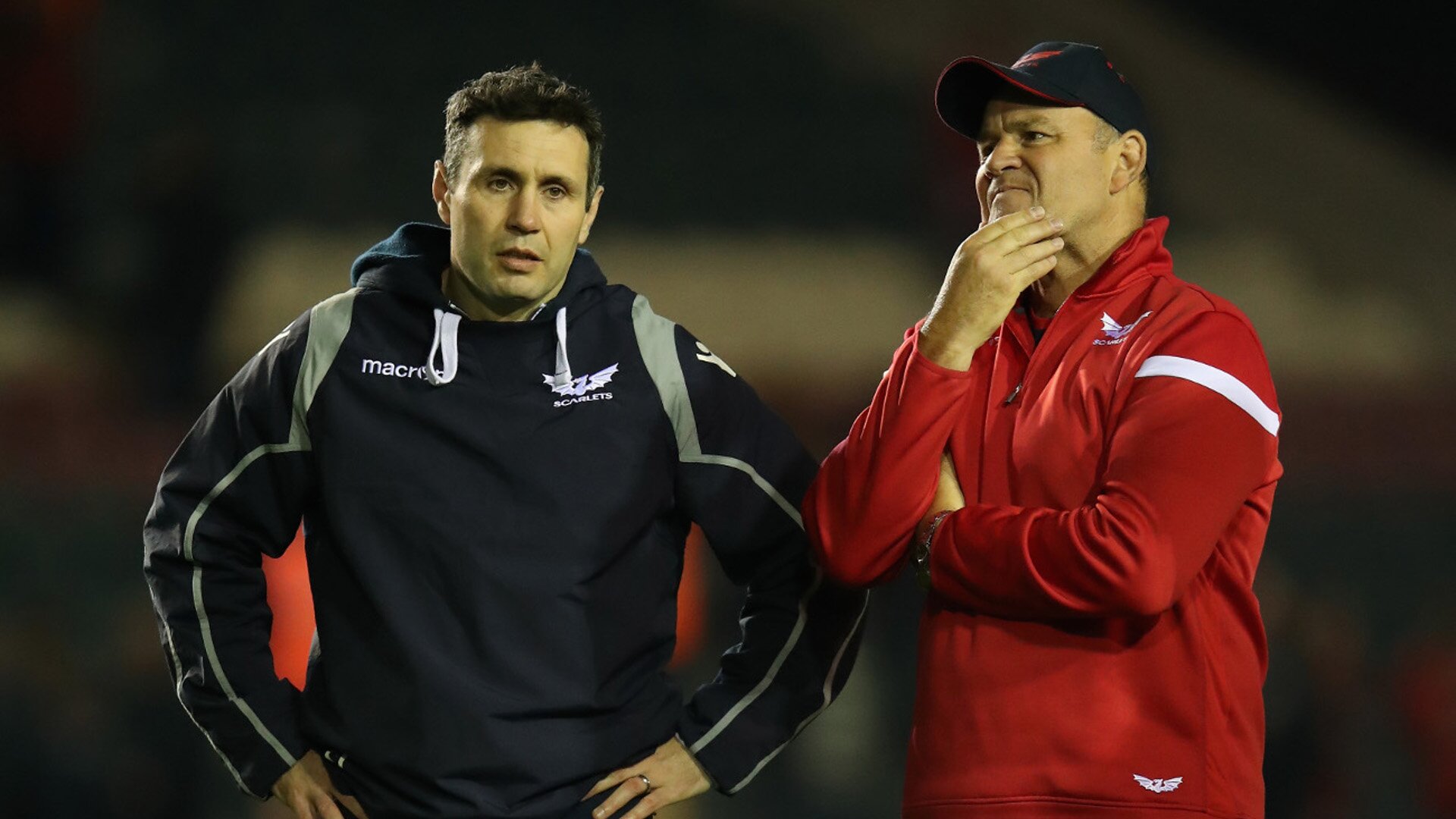Scarlets attacking system's failure could prove invaluable for Wales

“It’s fine to celebrate success but it is more important to heed the lessons of failure.”
Bill Gates did not have Welsh rugby in mind when he uttered those words, but they certainly proved prophetic for Wayne Pivac and Stephen Jones this week.
Defeat to Ospreys in the West Wales derby on Saturday was the Scarlets’ fourth in a row in December and their fifth loss in their last six matches.
It was certainly not how the coaches would have wanted to celebrate confirmation that Jones will join Pivac’s Wales backroom team following September’s Rugby World Cup.
That move was made public on Wednesday, two days after Sir Clive Woodward had used his Daily Mail column to suggest the Scarlets had lost focus in the final year of Pivac’s reign.
If – and it is a big if – the Kiwi coach’s attention had drifted towards his future role with Wales, even slightly, then it would only be natural for the Scarlets to experience a slight drop in intensity.
However, concentration was not an issue at the Liberty Stadium on Saturday, where the decision to play Hadleigh Parkes at fly-half, and employ a more robust kicking game, did not come off.
The Wales centre looked ponderous in possession and on occasion found himself out of position, but while Rhys Patchell was on the pitch he was able to keep the visitors in the ascendancy.
Once the full-back was forced off through injury, though, the Scarlets lost control of the match and Sam Davies, playing opposite Parkes, managed the game superbly to guide the Ospreys home.
Defeat leaves the Scarlets third in Conference B, but despite the protestations of Woodward few in Wales will have any doubt that the Welsh Rugby Union has selected the right man to replace Warren Gatland next year.
10 – Hadleigh Parkes will start at fly half for @scarlets_rugby for the first time this weekend, he's started at 11, 12, 13 and 14 since he arrived in Wales in 2014. Versatile. pic.twitter.com/dkvSG80M3h
— OptaJonny (@OptaJonny) December 21, 2018
On the contrary, as Gates noted above, the travails currently facing Pivac and Jones at the Parc y Scarlets may well prove invaluable when they move east to the Principality Stadium.
Scarlets fans will, of course, expect there to be renewed focus on the training pitch ahead of the remaining Welsh derbies this Christmas, and there will be no-one working harder to put things right than Jones.
Described by Dai Young as a “student of the game” when he left Wasps in 2015, the former British and Irish Lion’s career, both as a coach and player, has been defined by a desire for self-improvement.
In his playing days, Jones left the comfort of Llanelli and the Scarlets to challenge himself at Clermont and returned to Wales a more accomplished fly-half.
As a coach, he cut his teeth in the more pragmatic surroundings of the Premiership and Wasps before returning home to learn an expansive game under Pivac.
There was a feeling among Wasps fans that he left the club too early, just as things were beginning to click, but in both jobs he improved as a coach – and the team became more potent.

In Jones’ first year at Wasps, Young’s team scored 48 tries in the Premiership. In his second they scored 77.
The Scarlets too had improved year-on-year ahead of this season, breaching the goal line 45 times in the 2015-16 regular season campaign, 66 times in 2016-17 and 69 times last term.
It could be argued that the team’s struggles this season prove that teams have worked out how to contain their off-loading game but that is not necessarily a bad thing for Jones as he prepares to coach his country’s backs.
Scarlets had been something of an anomaly at club level, opposition teams not used to facing sides that played like them. Tight turnarounds, in turn, made it difficult for clubs to get to grips with their style.
According to one coach RugbyPass spoke to this week, Bath trained for just 20 minutes against the Scarlets’ system before playing them in the Champions Cup last season. That result – at The Rec – was a crushing bonus-point defeat.
However, Jones and Pivac can expect tier one Test defences to be much more prepared. It is perhaps telling that in the two biggest games of the Scarlets’ 2017-18 season – both against Leinster at Aviva Stadium – the Irish province starved their opponents of possession and kept them pinned in their own 22 for long spells.
Wales played with less than 50 per cent possession and territory in their recent wins over Australia and South Africa, and the incoming coaching team must find a way to do the same.
Jones will know the challenge he faces. “Our duty is to have the ability to play more than one way. Yes, you have your spine, your philosophy, but you have to have variety. It’s as simple as that,” he said in an interview with WalesOnline.
“You have to be able to go around a team, through a team, over a side, it doesn’t change.”
Saturday proved that Scarlets have more than one, exciting dimension to their play, but they were hamstrung by Patchell’s injury and lost the second-half kicking battle.
Jones will want to remind Wales of what his team is capable of against the Cardiff Blues next weekend. Come through this sticky patch and the future looks bright.
The more expansive way in which Wales have played of late can be traced to the Parc y Scarlets, and Jones seems to be a perfect fit. He has coached, or played with, the spine of the current side.
Scarlets might be wobbling heading into the New Year but there can be no doubt that Wales – and Pivac – have appointed the right guy to guide their backs.









































































